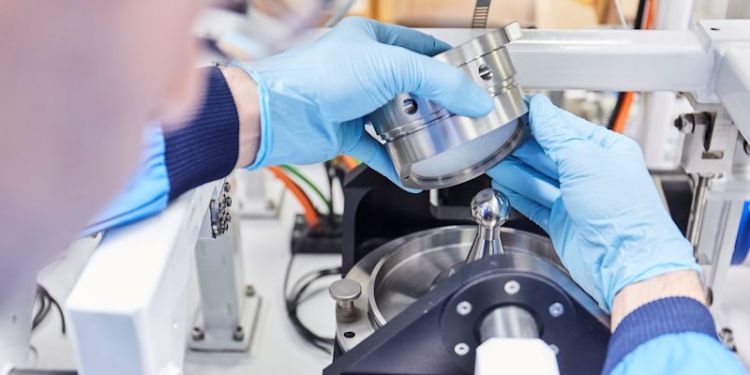Research highlights

Our approach to research brings together multidisciplinary teams to address major national and international challenges, enable discovery and generate impact.
In 2014, our School ranked 4th in the UK for research quality in the Research Excellence Framework (REF). Since then, we have grown substantially.
In the 2021 REF, 96% of research outputs submitted by the Faculty of Engineering were ranked as “world-leading” and “internationally excellent”. This was due to us having:
Delivered impactful research
Designed a device that patients could use in their own home, offering physiotherapy as frequently and for as long as they wish without the need to visit hospital.
Developed a robot that has successfully navigated one of the narrow shafts of the Great Pyramid - in an attempt to solve one of the big mysteries in Egyptian archaeology.
Given insight into how changing the design of typical man-made bee hives could increase the survival rate of honey bees.
Through the Institute of Medical and Biomedical Engineering (iMBE), developed new natural joint experimental and computational simulation capabilities to study the biotribology of natural hip, knee and ankle joints, and new biological scaffolds and regenerative interventions for anterior cruciate ligament replacement. This work underpins significant impact to industry and society.
Work through an EPSRC programme grant has led to significant advances in the knee, while in the hip, an EPSRC Healthcare Technology Challenge award is furthering simulations of the natural hip enabling assessment of surgical repair strategies.
Alongside colleagues from Electronic and Electrical Engineering and Computing, developed robots that 3D-print asphalt into cracks in roads, before they become potholes. And prototypes of small autonomous robots with the ability to transform the way the UK’s buried infrastructure networks are maintained, as part of Self Repairing Cities.
Through funding from the Leverhulme Trust, developed a material that mimics human cartilage – the body’s shock absorbing and lubrication system – which could herald the development of a new generation of lightweight bearings. The research was carried out alongside colleagues in Food Science and Nutrition.
Continued to deliver impact through our leadership of major international centres, including the EPSRC Medical Technologies Innovation and Knowledge Centre (IKC). Project supported through the IKC have secured more than £150M private sector investment, six spin-out companies and over 45 patents.
Through the Institute of Functional Surfaces (iFS), used our unique industrial-scale Physical Vapour Deposition coating facility to develop a range of new low-friction and low-wear coatings which are currently being patented.
Steered national and global collaborations
Through the iFS, developed the first 3D nano-printing system using ‘triboreactive’ materials. The method is now being expanded for different range of materials through a collaboration with the NTNU in Norway, Max Planck Institute for Intelligent Systems in Germany, and Caltech in USA.
Through the Institute of Thermofluids and the Institute of Design, Robotics and Optimisation, worked with overseas healthcare professionals to develop a device that helps desperately sick patients breathe - and costs around £150 to manufacture - which could revolutionise care in low to middle income countries.
Led an international collaboration funded by the EU’s Horizon 2020 programme to develop a new generation of artificial joints that last longer, produce fewer side effects and are better suited for younger people.
Funded by the Engineering and Physical Sciences Research Council (EPSRC) and BP, the iFS, in collaboration with the Universities of Cambridge, Manchester and Edinburgh, developed improved mechanistic models that define wear and corrosion performance of materials when used in extreme environments.
Built on long-term international industrial research collaborations – such as Infineum in the UK, Total in France, Komatsu in Japan, SKF in the Netherlands, and more – established the EPSRC Integrated Tribology Centre for Doctoral Training in partnership with the University of Sheffield.
Grown our interdisciplinary research
Developed interdisciplinary research that aims to make a lasting impact on improving the quality of life of an ageing population through the Institute of Medical and Biological Engineering (iMBE).
Developed advanced experimental and analytical capabilities to study the interface phenomena in tribological and corrosion interfaces, underpinning development of multiscale tribochemistry and corrosion mechanistic and numerical models.
Through the Institute of Thermofluids, conducted interdisciplinary research which led to developing new experimental flow cells for protein aggregation systems.
Using an advanced combination of Computational Fluid Dynamics (CFD), optimised optimization of fuel filtration systems, and developed mechanistic models of optimised semi-solid and colloidal systems.
Through the iFS, developed a unique corrosion experimental capability, enabling the generation of advanced pitting corrosion models, with significant impact on the oil and gas industry.
Conducted research on lubricant tribofilms, supported by an EPSRC Friction Programme Grant, which led for the first time to the quantification of tribofilm’s rheological properties and their effect on friction performance.
Part of the EPSRC Friction programme grant, developed a range of bespoke experimental equipment which utilise the Diamond Light Source synchrotron and other surface analytical techniques to enable in-situ lubricant film characterisation, providing new insights into lubricant film growth and their properties.
Developed a semi-deterministic multiscale wear model which couples contact mechanics with tribofilm formation and growth model to enable accurate prediction of wear performance of boundary and mixed lubricated systems.
Through an international partnership funded by the EU Marie Curie ITN scheme, the iFS is exploring the development of a range of green lubricants and surface engineering technologies.
Contact us
If you have an enquiry, please contact Professor Sophie Williams, Director of Research and Innovation.

